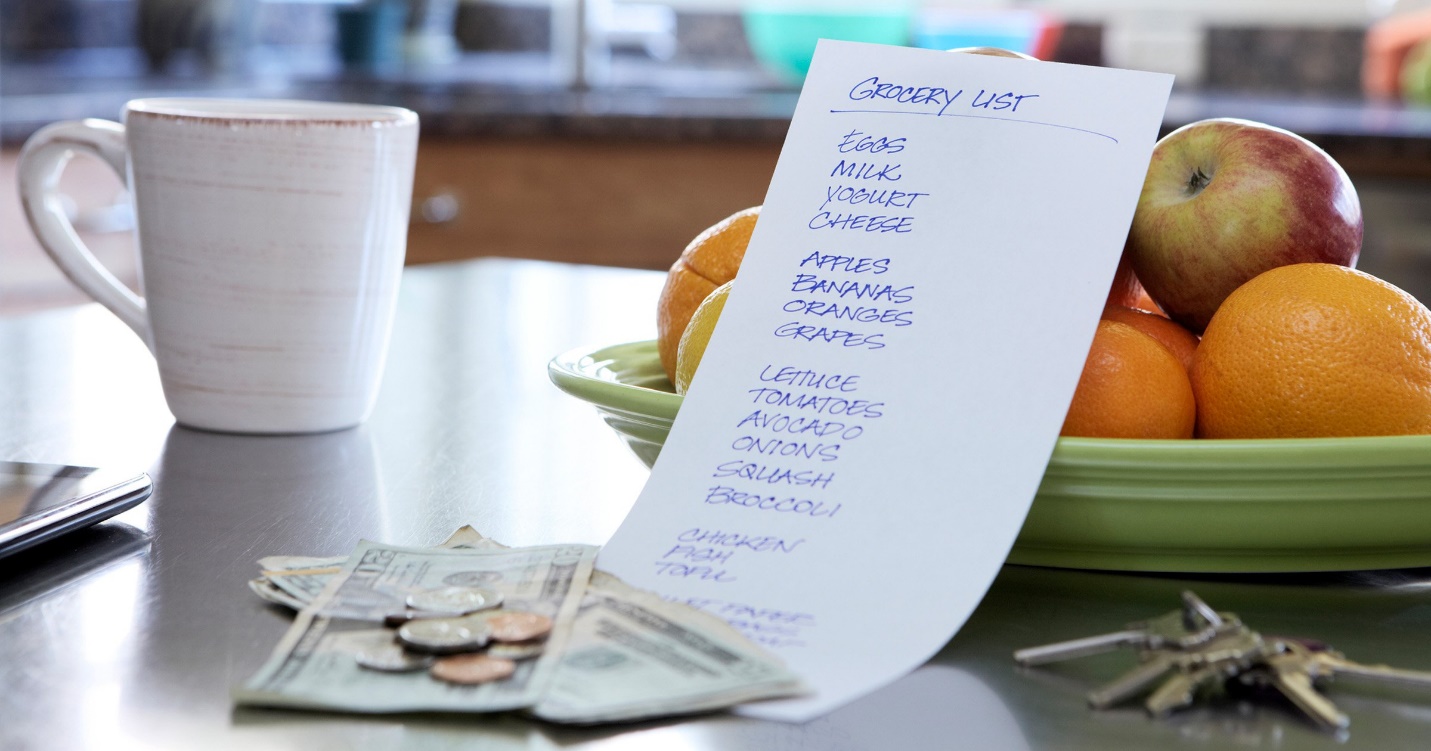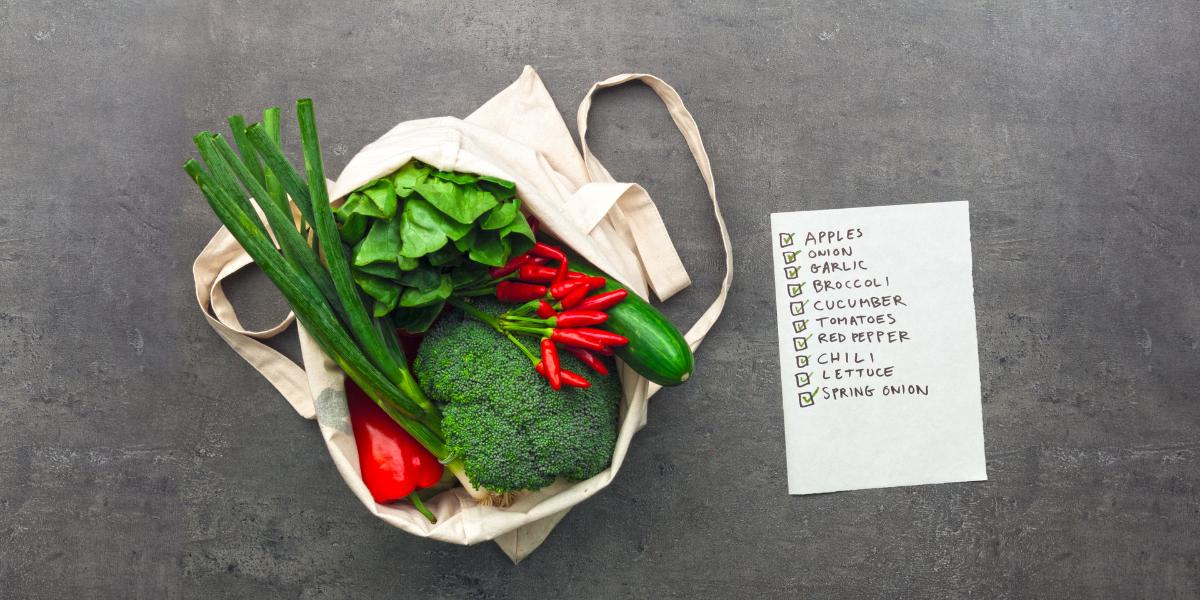Buying groceries regularly can be a significant portion of your budget. The U.S. Department of Agriculture estimates that 8.6% of household income goes toward food.
Eating out or ordering takeout is more expensive, but even cooking at home may be pricey if you're not careful with your ingredient selections. Choosing healthy, organic food over less healthy, cheaper options at the grocery store can drive up the bill even more.
How Much Should Two People Spend On Food Per Week?

The latest figures from the Office for National Statistics reveal that, on average, British families spend 16% of their annual income on food and non-alcoholic beverages. The annual grocery bill comes to £3,312. If we look at how much money is spent each month based on the number of people living in a home, we see that the typical couple spends about £374 per month, with about a third of that going to eating out.
Create A List

Make a rough weekly menu plan to get you through the next several days or until you can go grocery shopping again. Use what you have on hand and use your discretion when deciding how to blend ingredients.
Create a detailed shopping list, breaking down your needs into categories like "meat," "fruit and vegetables," and "other foods" to make your trips to the supermarket, butcher, and other places more manageable. The Foodwise website now offers a handy planner that considers what you currently have on hand, suggests recipes based on those components, and generates a shopping list.
Compare Prices
In addition to the supermarket, you might also consider shopping at specialty stores such as butchers, fruit and vegetable markets, and wholesalers. But give it some serious thought before you grab a deal. Always double-check expiration dates and only buy in bulk if you know you'll use both goods.
Cooperation Can Help You Save Money
Sharing meals is one method to cut costs when purchasing groceries. If you and your friends are interested in preparing healthy and delicious meals, consider setting up a food exchange. This plan allows you to spend time with friends and family weekly while also saving money on groceries and cooking time by preparing a large meal instead of numerous smaller ones.
You can also visit a warehouse store, farmers market, or food co-op to stock up on necessities at wholesale prices. It's worth mentioning that some farmer's markets designate a specific area for wholesale sales to restaurants. However, they tend to have higher minimum order requirements.
Try Cutting Back On Your Lunch Costs
Cutting lunches out can save you over $200 or over $50 per week. There are several ways to save money on lunch that you might try. To save money on lunch, you may consume leftovers, pack lunches for the week at the start, or swap meals with a coworker. Any of these strategies can potentially lower your monthly food expenditures. It also enables you to prepare and enjoy healthier meals on time and in terms.
Improve Your Health By Eating In
Avoiding restaurant meals is a great way to save money on food. Research conducted in 2015 indicated that millennials spend about 45% of their food budget on eating outside the home. This is an increase of over 10% from 2010. So, at least during the week, make your dinners at home. Try incorporating slow cooker dinners into your weekly routine if you are short on time in the evenings.
Plan Ahead, It Will Pay Off
Planning out your meals in advance is another strategy to help you save money on your monthly food costs. It facilitates the generation of, and adherence to, a shopping list, reducing the need for repeated excursions to the supermarket. Having a weekly dinner schedule allows you to cook simple dishes even on the busiest days of the week.
Plan to Eat could be useful if you have recipes you love to make but struggle to put together a shopping list and weekly meal. You may use this app to plan a meal around your favorite recipes, and it will even generate a shopping list for you.
Discounts, Sales, And In-Store Labels
You may save money on the things you already buy by using coupon codes and comparing prices. To achieve this, you can search for the most cost-effective supermarket. It's possible to find food at much lower prices at some supermarkets than at others in the neighborhood.
Using coupons is another great way to cut costs while shopping for food. Especially when it comes to the more expensive dinner components, like meat, it helps to plan your menu around the sales your store offers.




